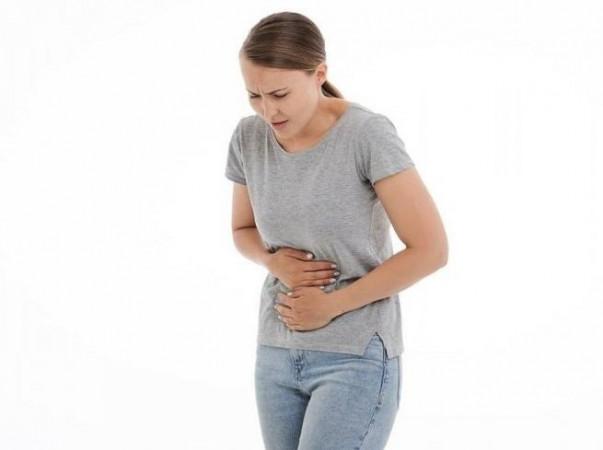With lockdowns becoming a crucial measure to contain COVID-19, people are staying indoors virtually locked away from the outside world. Now, a new study has found an alarming surge in the number of consultations for alcohol-related gastrointestinal (GI) and liver diseases even after lockdowns, suggesting that the world may have developed a drinking problem en masse due to the pandemic.
According to the new research, the rise in the number of consultations for alcohol-related diseases continues to remain consistently elevated long after the beginning of the pandemic. Also, the percentage of patients requiring endoscopic interventions has also risen, serving as an indicator of the visible severity of the disease.
The paper, Increased burden of alcohol-related gastrointestinal and liver diseases during the COVID-19 pandemic: A hospital system-wide audit, is set to be presented at the Digestive Disease Week (DDW) 2021.
"When we went into lockdown, many people experienced significant negative impacts, such as social isolation, job loss and an increase in anxiety and depression. These experiences may have led people to increase their alcohol consumption, which could explain why we are seeing a surge in the volume of consultations for alcohol-related diseases," said Dr. Waihong Chung, lead researcher of the study, in a statement.
Turning to Heavy Drinking

As the pandemic has progressed, several studies have suggested that individuals may be engaging in heavy drinking to cope with the pandemic. According to the National Institute on Alcohol Abuse and Alcoholism (NIAAA), heavy drinking is defined as the consumption of over four drinks on any day or over 14 drinks per week for men. In the case of women, it is the consumption of over 3 drinks on any day or over seven drinks per week.
For the study, the authors conducted a hospital system-wide audit in Rhode Island, USA. They audited all inpatient GI consultations conducted throughout the lockdown and also during the reopening phases. Next, the researchers compared the gathered information with the data for the same timeframe in 2019. This was done in order to discern the level of changes in the number of consultations for alcohol-related GI and liver ailments.
On account of restriction on hospital visits, the total number of consultations for GI decreased by 27 percent. However, the proportion of consultations, alcohol-related GI, and liver diseases showed a sharp increase of 59.6 percent. These afflictions included alcohol-related forms of gastritis, hepatitis, pancreatitis, and cirrhosis. Nevertheless, the authors found no notable changes in the proportion of consultations for conditions that were unrelated to alcohol such as inflammatory bowel diseases, gastrointestinal bleeding, and biliary obstruction/injury.
"In further analysis, we noted that during the lockdown phase, the majority of admission for alcohol-related GI and liver diseases clustered around weeks five, six and seven of lockdown. This timeframe mirrors the length of time it takes for symptoms to appear for these diseases, suggesting the start of the pandemic may have had an impact on patients' alcohol consumption," remarked Dr. Chung.
Sharp Rise In Alcohol-related Illness

During the reopening phase of lockdown, a restoration in the full volume of all GI consultations to pre-pandemic levels was noted. Also, the percentage of consultations for alcohol-related GI and liver diseases was found to remain exceedingly risen by 78.7 percent. Moreover, at 127.2 percent, the number of patients appearing with alcoholic hepatitis was more than double in comparison to 2019. The number of individuals who required inpatient endoscopic procedures has also increased from 12.8 percent in 2019 to 34 percent in 2020.
As several individuals with alcohol-related disorders may not seek hospital admissions immediately, health concerns related to increased alcohol consumption may be higher than recorded, the authors highlighted. Hence, the scientists urged that gastroenterologists and primary care physicians must intensify the questioning of their patients regarding their alcohol consumption, which could help identify those who may require instant addressing.
"Alcohol-related GI or liver diseases may cause sudden weight gain, yellowing of the skin, confusion, fatigue, decreased appetite, black stool and/or severe abdominal pain. I encourage anyone who is experiencing these symptoms as well as anyone who is concerned about his or her own drinking to see a physician as soon as possible," appealed Dr. Chung.
A Global Problem

The current study adds to the growing evidence pointing towards a global trend of increased alcohol consumption during the COVID-19 pandemic. A study conducted in Poland found that nearly 73 percent of the 443 participants used alcohol as the psychoactive substance of choice during the initial stage of the lockdown in the country. Among these, 14 percent of the respondents had begun consuming more alcohol.
Another study involving 2871 participants from Belgium, Canada, and France, also found similar results. While 49.1 percent of the sample population retained their standard alcohol intake, 26.4 percent reported an increase in their alcohol consumption.
A UK study conducted among 691 participants noted a 17 percent increase in alcohol consumption amongst the participants following the COVID-19 lockdown in the country. Worryingly, the proportion of the increase observed was high in the 18−34-year old group than older participants.















